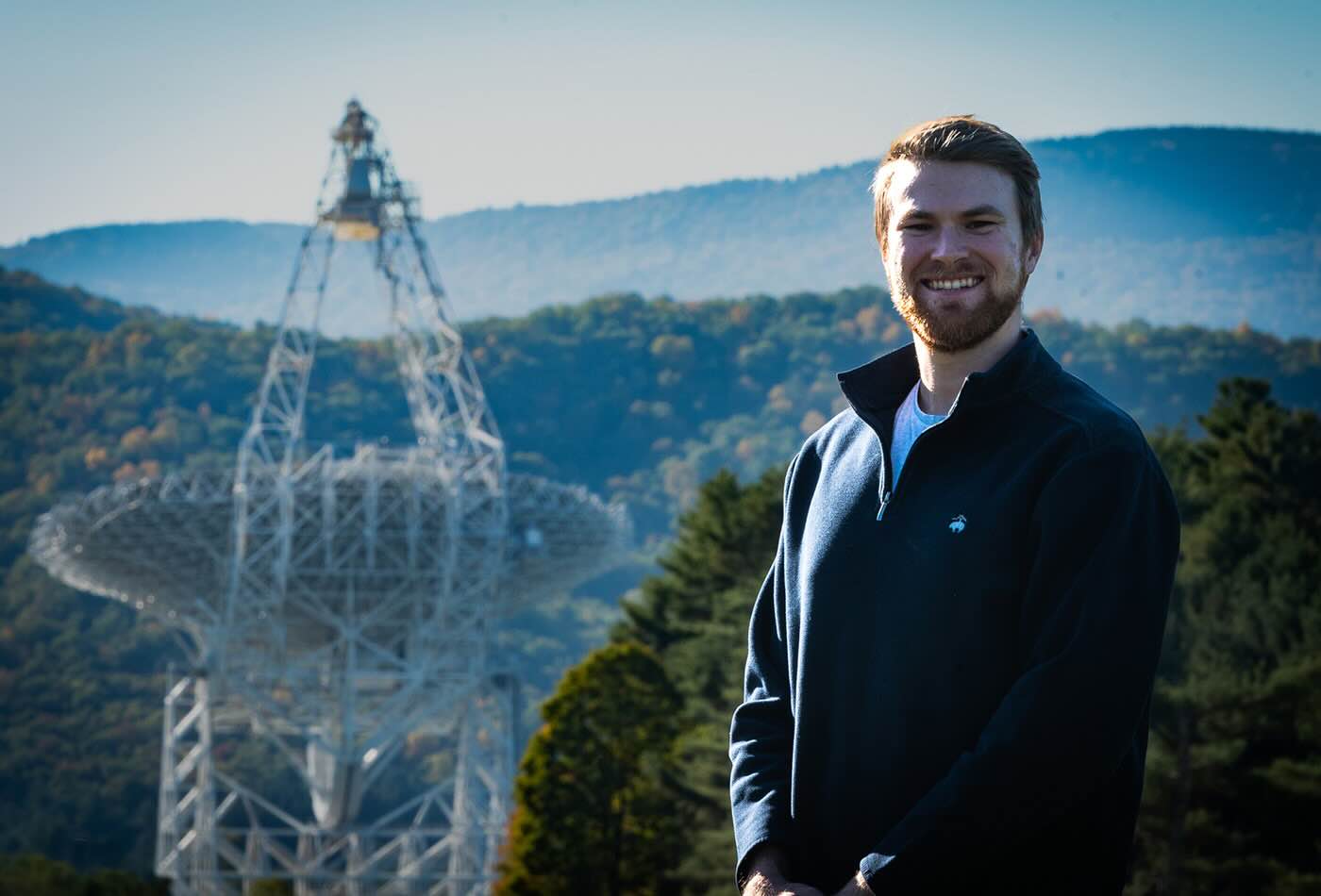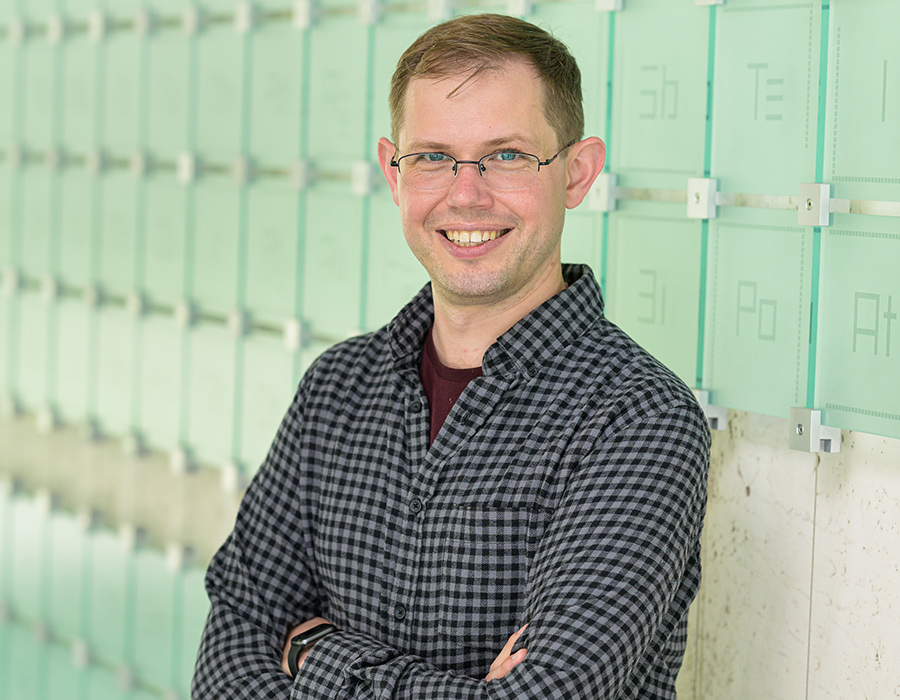Zachary Fried wins 2024 Rao Prize
The International Symposium on Molecular Spectroscopy has named Fried one of three winners of this year's Rao Prize.
Zachary Fried, a graduate student in Professor Brett McGuire‘s research group, has been named a winner of one of three 2024 Rao Prizes by the International Symposium on Molecular Spectroscopy (ISMS) for his talk, “WG09 ‐ ROTATIONAL SPECTRUM AND FIRST INTERSTELLAR DETECTION OF 2‐METHOXYETHANOL USING ALMA OBSERVATIONS OF NGC 6334I”. The Rao Prize was created by a group of spectroscopists who, as graduate students, benefitted from the emphasis on graduate student participation, which has been a unique characteristic of the Symposium.
“I am deeply honored to receive this award,” said Fried.”I’m incredibly grateful for my amazing group members and collaborators, whose support has been essential to my graduate research. Moving forward, I’m excited to continue exploring the molecular composition of interstellar space, aiming to advance our understanding of how molecular complexity develops under such extreme conditions.”
Fried’s research combines experimental and computational methods with astronomical observations to detect molecular species in space. “In the work for which the Rao Prize was awarded, we aimed to detect 2-methoxyethanol (CH3OCH2CH2OH) in regions of star formation,” he explained. “To achieve this, we first measured and analyzed its rotational spectrum. This data allowed us to successfully search for and detect the molecule in a star-forming region several thousand light years away. With 13 atoms, it is now the largest oxygen-containing molecule detected outside of our solar system. Therefore, this discovery deepens our understanding of how efficiently large organic molecules develop in space.”
Discovering new complex organic molecules in the interstellar medium enhances our knowledge of the efficiency and specific chemical processes that lead to molecular complexity in space. Fried is particularly interested in examining how molecular inventories differ among interstellar sources at various stages of star formation.





